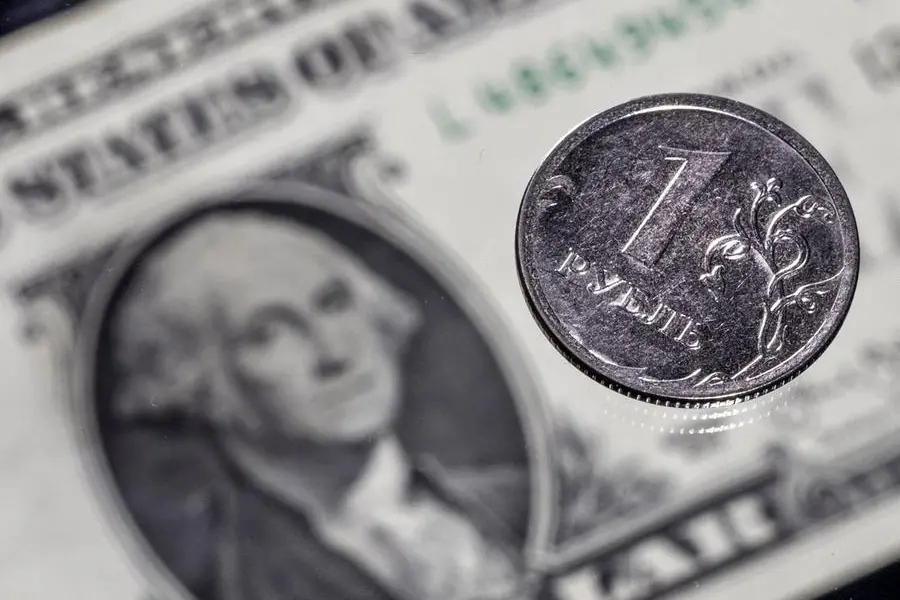PHOTO
The rouble firmed towards 53 to the dollar on Tuesday due to capital controls and month-end taxes that offset a negative impact of Western statements that Russia has defaulted on its international bonds for the first time in more than a century.
The White House and Moody's credit agency said Russia has defaulted as sanctions have effectively cut the country off from the global financial system, rendering its assets untouchable.
But the Kremlin, which has the money to make payments thanks to oil and gas revenues, has rejected the claims and accused the West of driving it into an artificial default.
At 0729 GMT, the rouble was 0.2% stronger against the dollar at 53.27, trading near its strongest level in nearly seven years of 52.80 it touched last week.
The rouble gained 0.3% to 56.13 against the euro , hovering at much stronger levels than before Russia sent tens of thousands of troops into Ukraine on Feb. 24.
Back then the rouble traded near 80 to the dollar and 90 to the euro as it was in a free-float mode and was hammered by fears of sanctions and had no support from capital controls.
Capital restrictions made the rouble the best-performing currency this year and helped it shrug off Russia's debt issues.
The declared default will have no substantial impact on Russian securities as Eurobonds have priced in the default a long time ago, while the external debt market is shut for Russia anyway, said Alexander Afonin, head of debt research at Sinara investment bank.
This week's peak of a month-end tax period that sees exporting companies convert dollar and euro revenue into roubles may add short-term support to the Russian currency.
On the stock market, the dollar-denominated RTS index slid 0.4% to 1,421.9 points. The rouble-based MOEX Russian index was 0.6% lower at 2,403.1 points.
For Russian equities guide see
For Russian treasury bonds see
(Reporting by Reuters)
Reuters





















